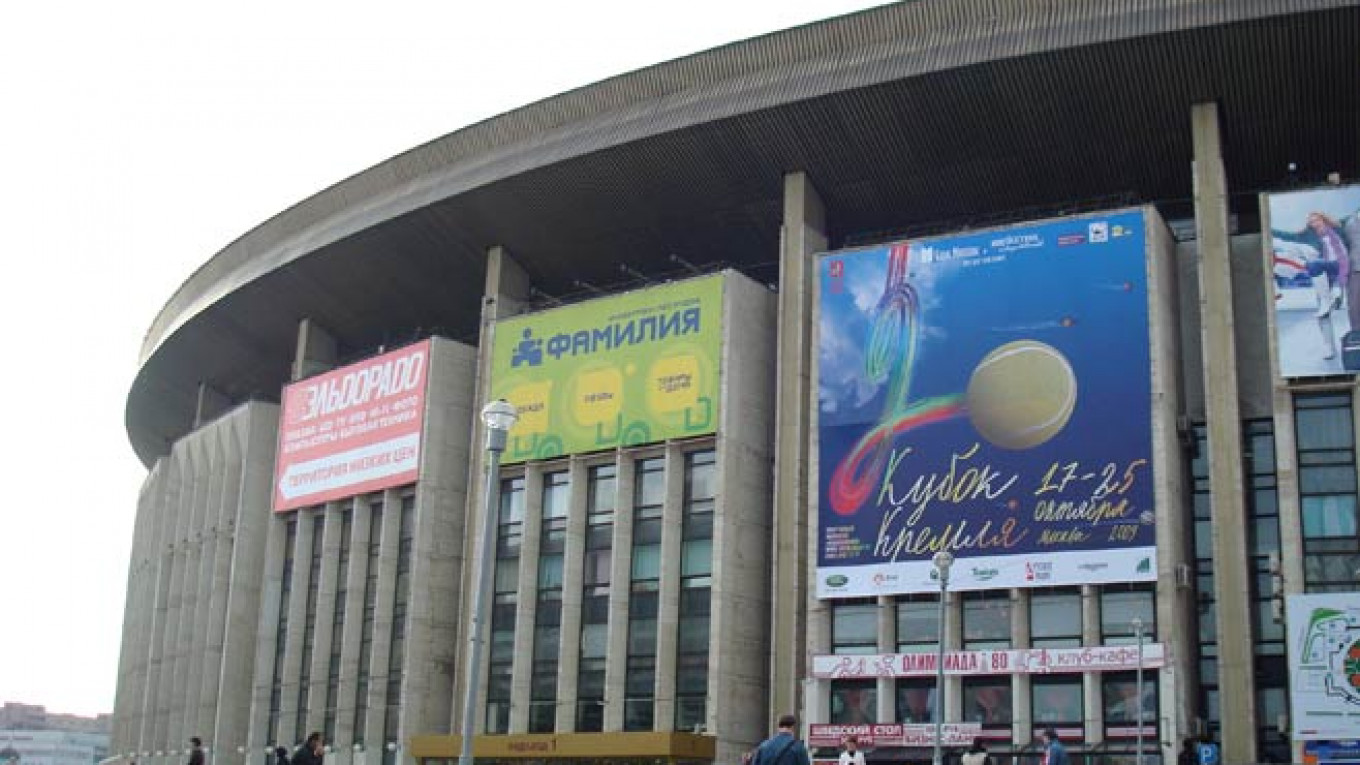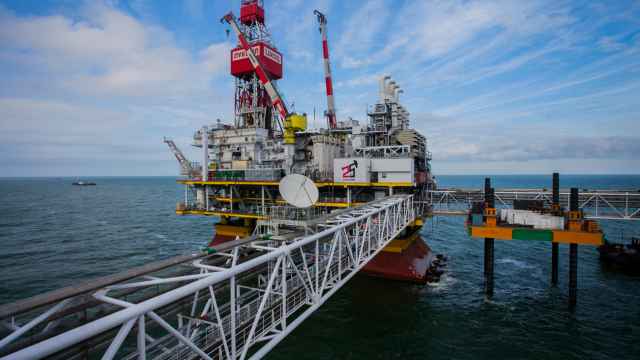The Moscow government plans to auction off it majority stake in the massive Olimpiisky Sports Complex on May 15, the latest in a series of unsuccessful attempts to offload the dilapidated arena.
The starting price for the complex is 4.45 billion rubles ($124 million). However, the owners are estimating the new proprietor will have to spend 5 billion rubles alone on repairs.
The Olimpiisky Sports Complex is one of the biggest sporting venues not only in Russia, but in all of Europe. The venue covers 16 hectares of land and has an overall area of 213,000 square meters. The complex comprises three buildings — a roofed stadium, swimming pool and ice rink.
Despite its size, it has not been profitable and needs serious refurbishment. According to the auction materials, even in 2004 the complex was worn out by 18 percent, while the swimming pool had a wear-out rate of 27 percent.
The auction is open for the 65 percent of the shares, which belong to the Moscow government and the Fund for Inter-Industry Investments, a private organization. Bidding is open until April 21. It is still unclear who the main bidders will be.
Apart from the government, 27.5 percent of the shares belong to the company Vuschaya Liga Trust, owned by the businessman Pavel Fuks, and 8.5 percent of the shares are held by individuals.
The government has been trying to sell its shares since 2012. However, auctions were postponed several times due to lack of interest. At one point investment company Sistema expressed interest in buying a share of the complex but has decided to not participate in the coming auction, Olimpiisky Sports Complex CEO Mikhail Moskalyov told Gazeta.ru.
"The government is selling its shares and not the whole venue, which is one of the key factors scaring away firms," said Yulia Nikulicheva, head of strategic consulting in the company Jones Lang LaSalle. She added that the price is quite high and that there are many investment risks.
Buyers are also hesitant to invest due to the relatively low profits generated by sporting venues, Nikulicheva said. The entertainment industry might find the complex more appealing, as it could be used for concerts and other events, which are usually more profitable.
"I see mainly economic deterrents. A sporting venue is generally less lucrative than commercial real estate," said Nikolai Kazansky, managing partner in Colliers International. Kazansky added that he believed this was the main issue blocking the sale.
Contact the author at d.kulchitskaya@imedia.com
A Message from The Moscow Times:
Dear readers,
We are facing unprecedented challenges. Russia's Prosecutor General's Office has designated The Moscow Times as an "undesirable" organization, criminalizing our work and putting our staff at risk of prosecution. This follows our earlier unjust labeling as a "foreign agent."
These actions are direct attempts to silence independent journalism in Russia. The authorities claim our work "discredits the decisions of the Russian leadership." We see things differently: we strive to provide accurate, unbiased reporting on Russia.
We, the journalists of The Moscow Times, refuse to be silenced. But to continue our work, we need your help.
Your support, no matter how small, makes a world of difference. If you can, please support us monthly starting from just $2. It's quick to set up, and every contribution makes a significant impact.
By supporting The Moscow Times, you're defending open, independent journalism in the face of repression. Thank you for standing with us.
Remind me later.






